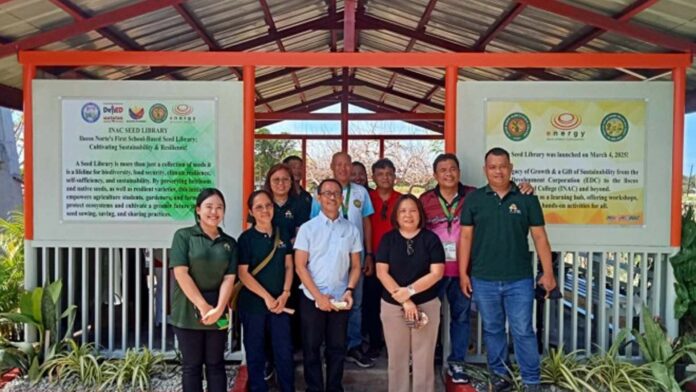A collection of heirloom, native and resistant vegetable seed varieties currently grown at the Ilocos Norte Agricultural College (INAC) in Pasuquin, Ilocos Norte will soon be available for sharing with other schools and other plant enthusiasts in the province to ensure that they will be preserved from generation to generation.
The heirloom and native seeds, which include red beans, bitter gourd, squash, winged beans and tomatoes, among others, will be made available at the INAC seed library formally inaugurated on Tuesday in partnership with the Energy Development Corporation and the Ilocos Norte Research and Experiment Center.
In an interview with the Philippine News Agency on Friday, Joel Calidro, project leader of the first school-based seed library in the province, said about 11 varieties of heirloom and open-pollinated varieties are under their care.
“We initiated this project because of a growing concern for expensive seedlings and the inaccessibility of native seeds at home. Together with our parents and students engaged in agriculture, we started the sowing and growing of these varieties to benefit the future generation,” he said.
He said these plant varieties need to be conserved and made available to the community as they are tolerant to the impacts of climate change, and to promote food biodiversity, self-sufficiency, and sustainability.
Calidro noted that the growing dependence on commercial or hybrid seeds, which usually produce smaller yields than native varieties, is contributing to the scarcity of heirloom vegetable varieties in the market.
“By preserving heirloom and native seeds, as well as resilient varieties, this initiative empowers agriculture students, gardeners, and farmers to protect ecosystems and cultivate a greener future through seed sowing, saving, and sharing practices,” he said.
Meanwhile, Crisner Lagazo, owner of the Crisner Integrated Farm in Sulbec, Pasuquin town, said having an accessible seed library for high-quality seeds is a “big blessing” to the community.
“This will help empower local communities one seed at a time.” (PNA)






